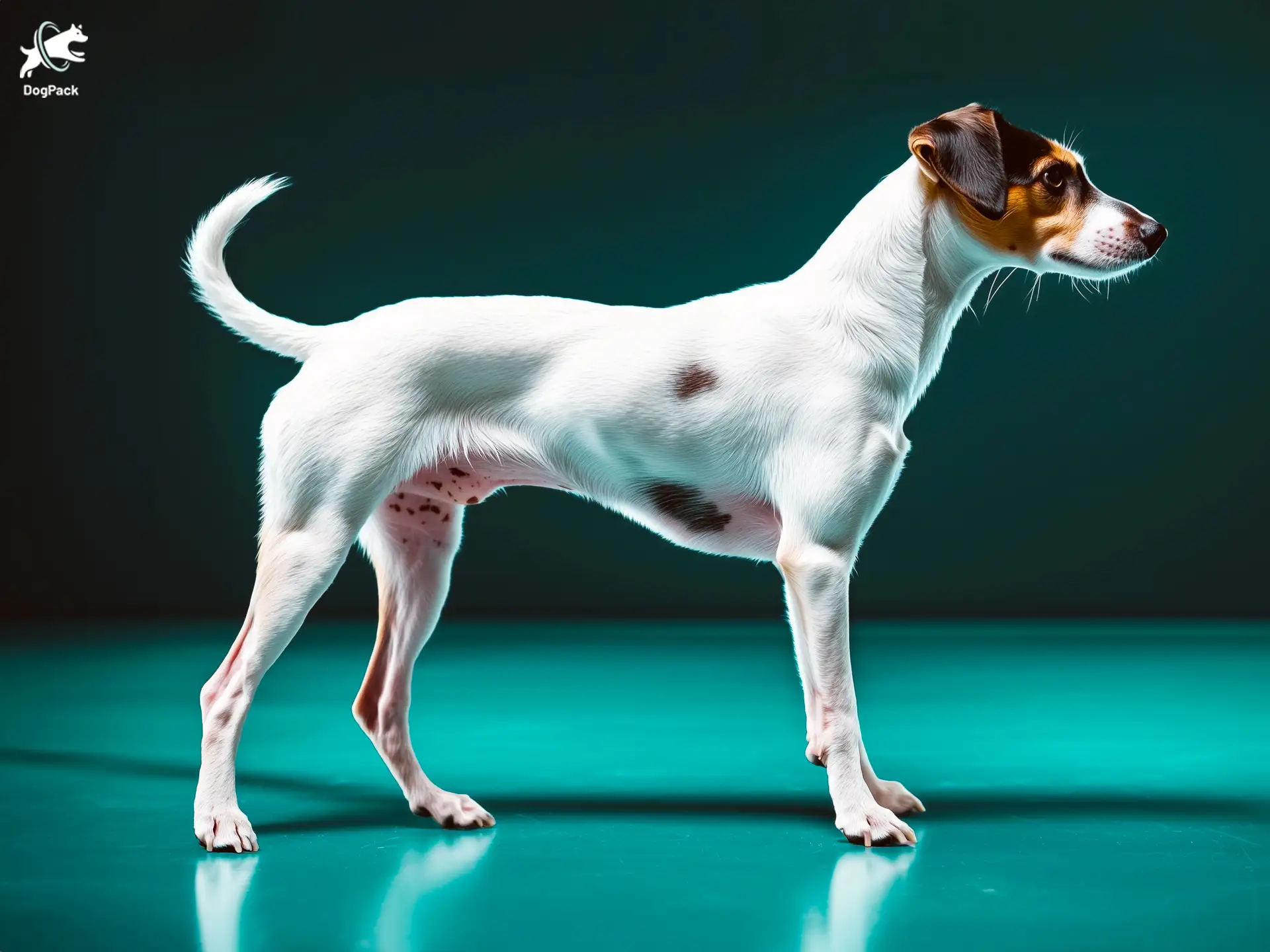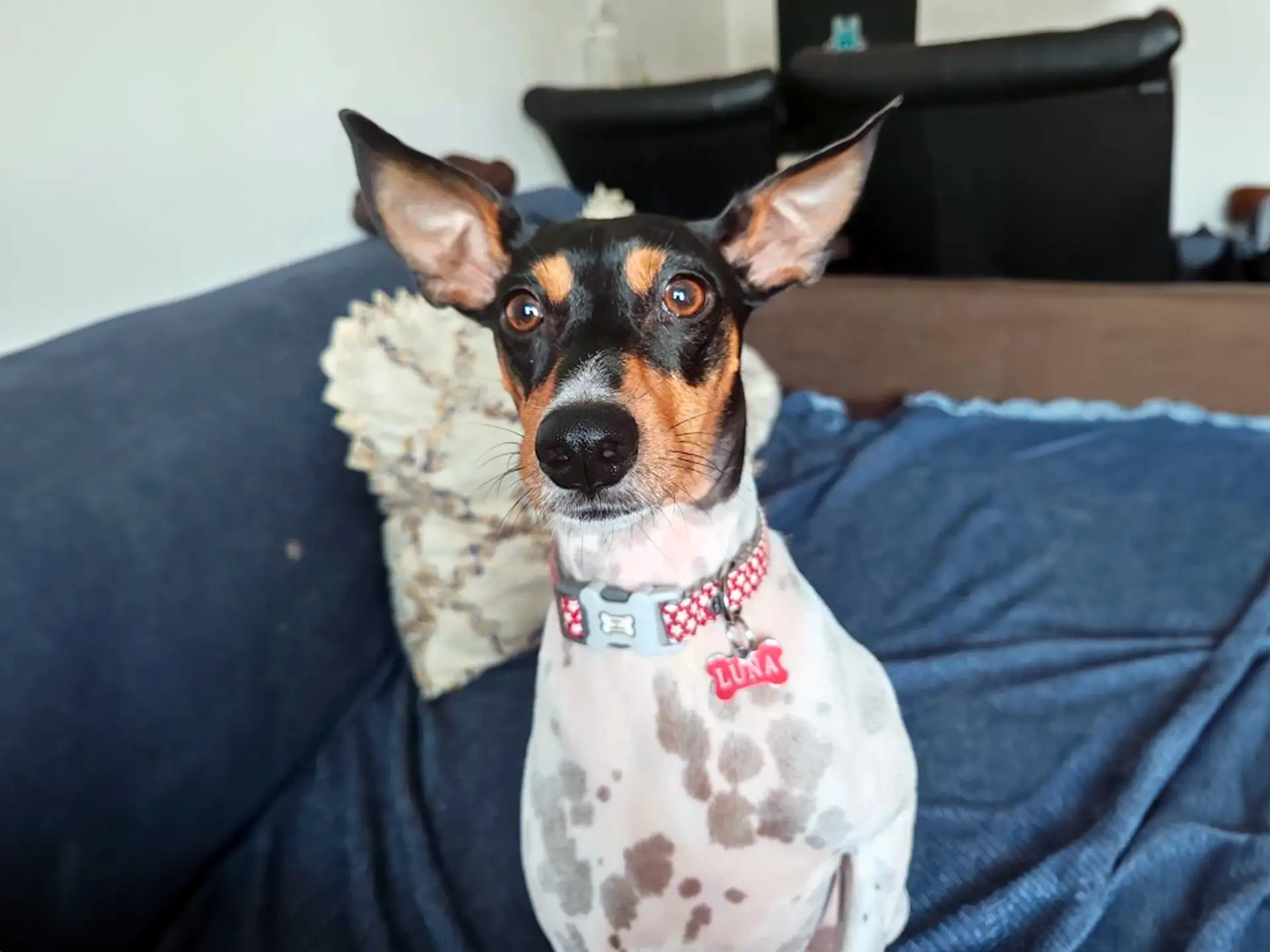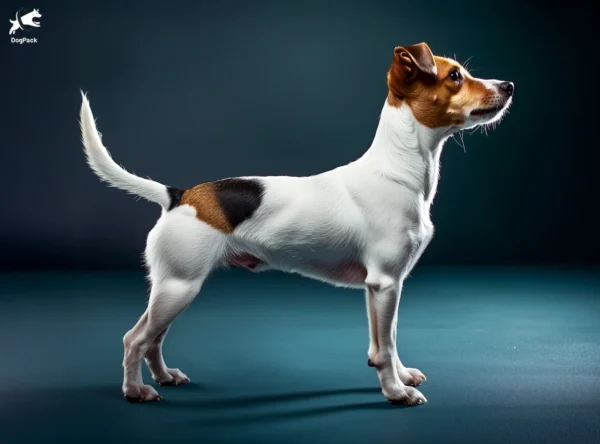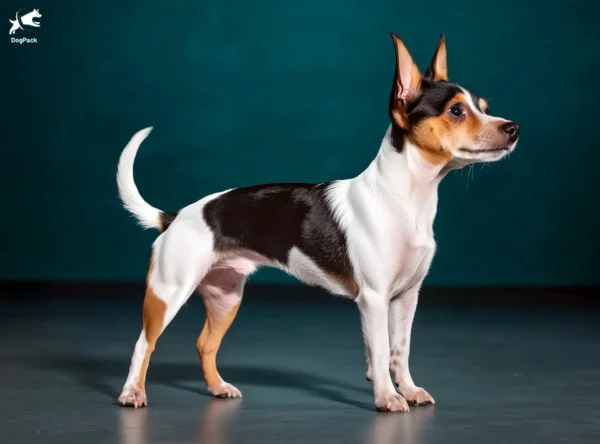- Andalusian Terrier (Ratonero Bodeguero Andaluz) Dog Breed Info & Overview
- Characteristics
- Pictures
- Breed History
- Temperament, Personality
- Physical Characteristics
- Health Issues
- Grooming Needs
- Exercise Requirements
- Training Tips
- Nutrition, Diet
- Adoption, Breeders
- Family Pet?
- Right For You?
- Conclusion
- FAQs
- Breed Ratings
Andalusian Terrier (Ratonero Bodeguero Andaluz) Dog Breed Info & Overview
The Andalusian Terrier, officially called the Ratonero Bodeguero Andaluz, is a spirited breed from Spain’s vibrant Andalusia region. Bred for its exceptional rat-hunting skills, this agile dog is quick, intelligent, and full of energy. Their playful nature makes them a perfect fit for active families seeking a loyal companion. Whether in the home or outdoors, the Andalusian Terrier’s lively personality and sharp instincts shine through.
Characteristics
Pictures
Breed History
The Andalusian Terrier traces its roots back to the late 18th century in Spain’s Andalusia region. Developed by blending local terriers with English Fox Terriers brought over by sherry exporters, this breed was designed to control rodent populations in wine cellars and stables.
These agile dogs became experts at chasing down rats and mice, earning them the name “Ratonero,” which means “rat hunter” in Spanish. Their keen sense of smell and relentless drive made them invaluable to vineyard owners looking to protect their precious stock.
Despite their significant role in Spanish history, the breed remained relatively unknown outside its homeland for many years. Only recently has the Andalusian Terrier started gaining recognition among dog enthusiasts worldwide for its unique heritage and skills.
Temperament, Personality
Known for their vivacious and spirited nature, these terriers are always up for an adventure. They form strong bonds with their families and thrive on companionship, making them excellent household pets. Their intelligence and curiosity often lead them into amusing antics.
While they are affectionate with their loved ones, they can be reserved or cautious around strangers. Early socialization is essential to ensure they grow into well-rounded adults. Their natural hunting instincts mean they may not always get along with small pets like hamsters or rabbits.
With children, they are generally playful and gentle, enjoying games and outdoor activities. However, their energetic disposition means they can be a bit rambunctious, so supervision with very young kids is recommended. Their bravery and alertness also make them good watchdogs.
Physical Characteristics
Sporting a sleek and muscular build, the Andalusian Terrier is built for agility and speed. They typically stand between 13 and 16 inches tall and weigh around 12 to 18 pounds. Their short, smooth coat is predominantly white with black and tan markings, giving them a distinctive and attractive appearance.
Their expressive eyes are usually dark and full of intelligence, while their ears are semi-erect, adding to their alert expression. A well-proportioned body with a deep chest and strong legs allows them to move swiftly, a necessity for their rat-hunting duties.
Their tails are traditionally docked in their country of origin, although this practice is less common elsewhere. Overall, their appearance is that of a classic terrier: compact, energetic, and ready for action at a moment’s notice.
Health Issues
The Andalusian Terrier is generally a healthy breed with few genetic health issues. However, like all breeds, they can be prone to certain conditions. Patellar luxation, where the kneecap can dislocate, is one such concern due to their active nature.
Eye problems such as cataracts or lens luxation may occur, so regular veterinary check-ups are important. Their short coat means they are less susceptible to skin issues, but they can be sensitive to extreme temperatures, particularly cold weather.
Maintaining a balanced diet and regular exercise routine will contribute to their overall well-being. Preventive care, including vaccinations and parasite control, is essential to keep them in top health throughout their lifespan.
Grooming Needs
One of the perks of owning this breed is their low-maintenance grooming needs. Their short, smooth coat requires minimal care—a weekly brush with a soft-bristle brush or grooming mitt is usually sufficient to remove loose hairs and keep their coat shiny.
Bathing is only necessary when they get particularly dirty, as over-bathing can strip the natural oils from their skin. Regular checks of their ears, eyes, and teeth should be part of their grooming routine to prevent infections or dental issues.
Don’t forget to trim their nails every few weeks, especially if they don’t naturally wear them down through activity. Their grooming routine is a great opportunity to bond and check for any unusual lumps or skin problems.
Exercise Requirements
High energy levels mean these terriers need plenty of exercise to stay happy and healthy. Daily walks, combined with play sessions and mental stimulation, are essential. They excel in activities like agility training, which can help channel their energy positively.
Without sufficient exercise, they may become bored and develop unwanted behaviors like digging or excessive barking. Interactive toys and puzzles can keep them engaged when you’re not able to provide physical activity.
These dogs love to explore, so secure fencing is a must if you have a yard. Regular trips to the dog park or countryside walks can satisfy their curiosity and natural hunting instincts in a safe environment.
Training Tips
Intelligent and eager to please, the Andalusian Terrier responds well to positive reinforcement training methods. Consistency and patience are key, as they can sometimes be stubborn. Early obedience training will help harness their energy and focus their minds.
Socialization from a young age is crucial to ensure they are comfortable around other dogs and people. Puppy classes can be a great way to introduce them to new experiences in a controlled environment.
Given their strong prey drive, recall training is important to prevent them from chasing after small animals during walks. Reward-based training will yield the best results, making learning fun and engaging for both of you.
Nutrition, Diet
A diet rich in high-quality proteins and fats is essential for this active dog. They require food formulated for small breeds with high energy levels to meet their nutritional needs. Dividing their meals into two servings per day can help maintain consistent energy levels.
Portion sizes will depend on their age, weight, and activity level, but generally, they consume about 1 to 1.5 cups of dry food daily. Monitoring their weight and adjusting portions accordingly will help prevent obesity, which can strain their joints.
Consulting with your veterinarian can provide personalized dietary recommendations. Fresh water should always be available, and treats should be given in moderation to avoid unnecessary calorie intake.
Adoption, Breeders
Finding this rare breed may require some patience and research. Reputable breeders can be found primarily in Spain, but there are breeders in other countries dedicated to preserving the breed. Ensure any breeder you consider follows ethical practices and provides health clearances.
Adoption is another option, though it may be more challenging due to the breed’s rarity. Rescue organizations sometimes have these dogs available. Websites like the Club Español del Ratonero Bodeguero Andaluz can offer guidance on where to find adoptable Andalusian Terriers.
The American Rare Breed Association recognizes the Andalusian Terrier and may provide resources for locating breeders. Remember to ask plenty of questions and, if possible, meet the puppy’s parents to get a sense of temperament and health.
Family Pet?
With their affectionate and playful nature, the Andalusian Terrier makes an excellent family pet. They enjoy being part of household activities and form strong bonds with all family members. Their energy levels mean they’ll happily join in games and outdoor adventures.
They are generally good with children, especially when raised together. However, due to their high energy and sometimes boisterous play, supervision with very young kids is advisable. Teaching children how to interact respectfully with dogs is always important.
As natural hunters, they might not be the best match for homes with small pets like rodents or birds. With proper socialization, they can get along with other dogs, but their prey drive may be too strong to trust them around smaller animals.
Right For You?
If you’re an active individual or family looking for a lively companion, the Andalusian Terrier could be a great match. They thrive in environments where they receive plenty of exercise and mental stimulation. Their size makes them adaptable to various living situations, provided their activity needs are met.
First-time dog owners may find them a bit challenging due to their energy and intelligence. Consistent training and socialization are key to managing their spirited nature. They are best suited to owners who have time to dedicate to their exercise and training.
Ultimately, they are loyal and affectionate dogs that bring a lot of joy to the right home. If you’re prepared to meet their needs, you’ll be rewarded with a devoted and entertaining companion.
Conclusion
From their roots as skilled rat hunters in Andalusia’s vineyards to their role as energetic family companions, the Andalusian Terrier is a breed full of life and character. Their intelligence and affectionate nature make them a joy to own for those prepared to meet their exercise and training needs. If you’re seeking a spirited and loyal friend, this rare Spanish gem might just be the perfect addition to your family.
FAQs
-
Are Andalusian Terriers good apartment dogs?
While the Andalusian Terrier’s small size makes them suitable for apartment living, their high energy levels require ample daily exercise. They can adapt to smaller spaces if they receive enough physical activity and mental stimulation to prevent boredom.
-
How much does an Andalusian Terrier puppy cost?
Due to their rarity outside Spain, Andalusian Terrier puppies can be quite expensive, ranging from $800 to $1,500 or more. Prices vary based on breeder reputation, lineage, and availability. Potential owners should also consider travel costs if importing from abroad.
-
Do Andalusian Terriers get along with cats?
Given their strong prey drive, Andalusian Terriers may not be the best match for homes with cats. Early socialization can help, but caution is advised as they might instinctively chase smaller animals due to their hunting background.
-
Are Andalusian Terriers hypoallergenic?
No, Andalusian Terriers are not considered hypoallergenic. They have a short coat that does shed moderately. People with allergies may still react to their dander, so spending time with the breed beforehand is recommended.
-
How intelligent is the Andalusian Terrier?
The Andalusian Terrier is quite intelligent and quick to learn. Their sharp mind was honed through generations of hunting work. They excel in obedience and agility training when motivated with positive reinforcement methods.
Breed Ratings
The Andalusian Terrier is smart and quick-witted, making training enjoyable when consistent methods are used.
This breed loves to play and engages enthusiastically in games, making them great companions for active families.
With high energy levels, they need plenty of physical activity and mental stimulation to prevent boredom.
They have a short coat that sheds minimally, making grooming relatively easy.
As natural rat hunters, their prey drive is strong, and they may chase small animals if not properly trained.
Low grooming needs mean a simple weekly brushing is usually sufficient to keep their coat healthy.
While intelligent, they can be stubborn at times. Consistent, positive training methods yield the best results.
They prefer company and may develop separation anxiety if left alone for long periods.
They can be vocal, especially if bored, but proper training can help manage excessive barking.
This breed drools very little, if at all, which can be a plus for tidy owners.
With proper socialization, they get along with other dogs, but early introductions are important.
Generally healthy with few genetic issues, they have a good lifespan when provided proper care.














